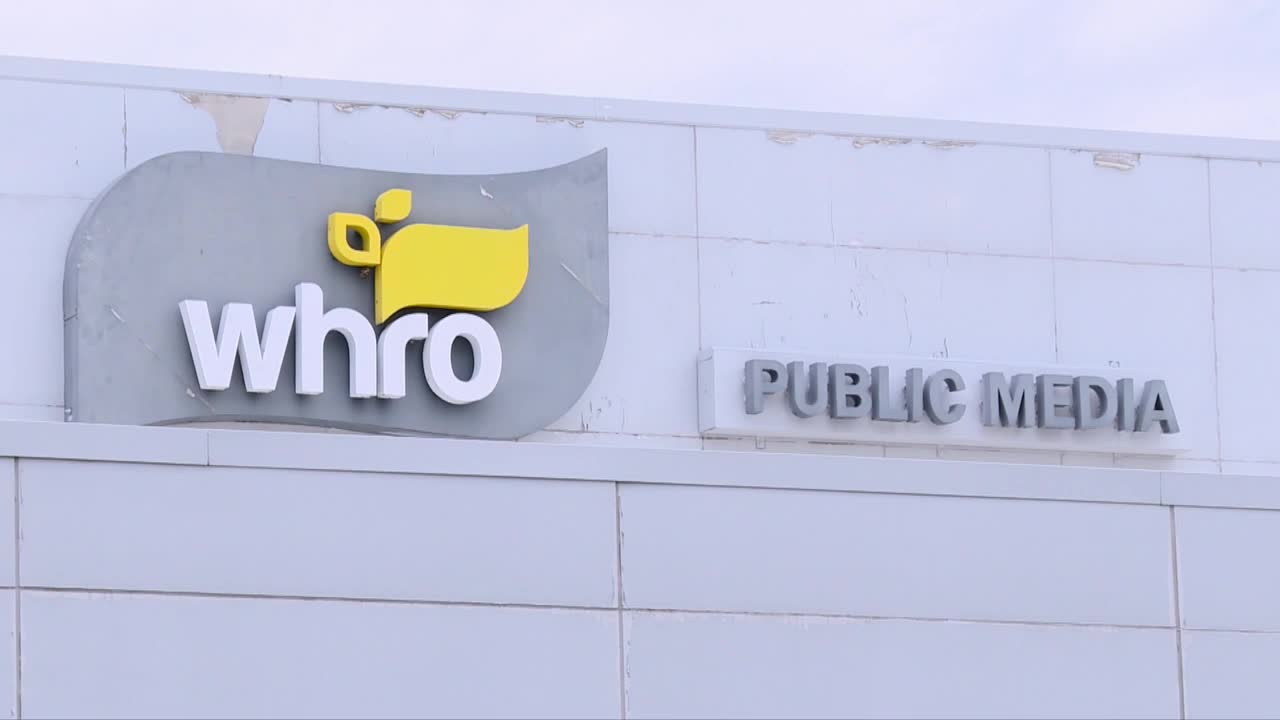NORFOLK, Va. — Congress has voted to cut back roughly a billion dollars in federal funding for public broadcasting outlets, which means local public media stations like WHRO in Norfolk are facing significant financial challenges.
The funding cuts stem from an executive order issued by President Donald Trump on May 1, which states that neither NPR nor PBS "presents a fair, accurate, or unbiased portrayal of current events to taxpaying citizens." WHRO is Hampton Roads' local NPR/PBS station.
Congress passed a rescission package on July 18, withdrawing federal funding for public media broadcasting. However, the bill still requires the president's signature to become law.
Political analyst Eric Claville highlighted the repercussions of these cuts, stating, "These cuts are going to hurt families. They're going to hurt areas such as those in rural communities and those in low-income families that rely upon the educational programs that public media provides."
Watch related: Houses passes $9.4 billion in cuts to public broadcasting and international aid
Local public media stations, including WHRO, produce vital news content covering both community and national issues. Bert Schmidt, President and CEO of WHRO Public Media, expressed concern that the station's funding is being cut "for what seems to be partisan reasons."
WHRO stands to lose roughly $2 million in federal funding, and some retiring staff will not be replaced. Despite anticipating these cuts for some time, Schmidt faces the challenge of maintaining daily operations without this funding.
"The $1.9 million we're losing is about 9% of our budget. My current budget—about half of that—is restricted to specific efforts. We receive money for specific works, and that's about half," Schmidt explained. "So when you start pulling out fixed costs and restricted funds, we're really looking at a piece of $5 million we can play with, and almost $2 million is going to have to get cut from that."
Watch related: PBS president tells Scripps News legislation would cause some rural stations to close
WHRO's viewership spans the greater Hampton Roads region, and these financial constraints are impacting individuals like Eric Claville, who hosts weekly political radio segments with WHRO.
"I've been able to be a part of bringing discussion and answering call-in questions about very important issues that are affecting individuals across the board, whether it be local, state, national, or even international," Claville explained.
The future of his segments remains uncertain due to the funding cuts, but WHRO leaders are relying on donations from their members to help bridge the gap.
Schmidt noted, "We're putting the plans together right now to talk to many of those folks to help support us, if you will, with money to get us through so we can spend more time making more efficiencies and cuts and identifying revenue. So we're looking at a 12-month campaign."







